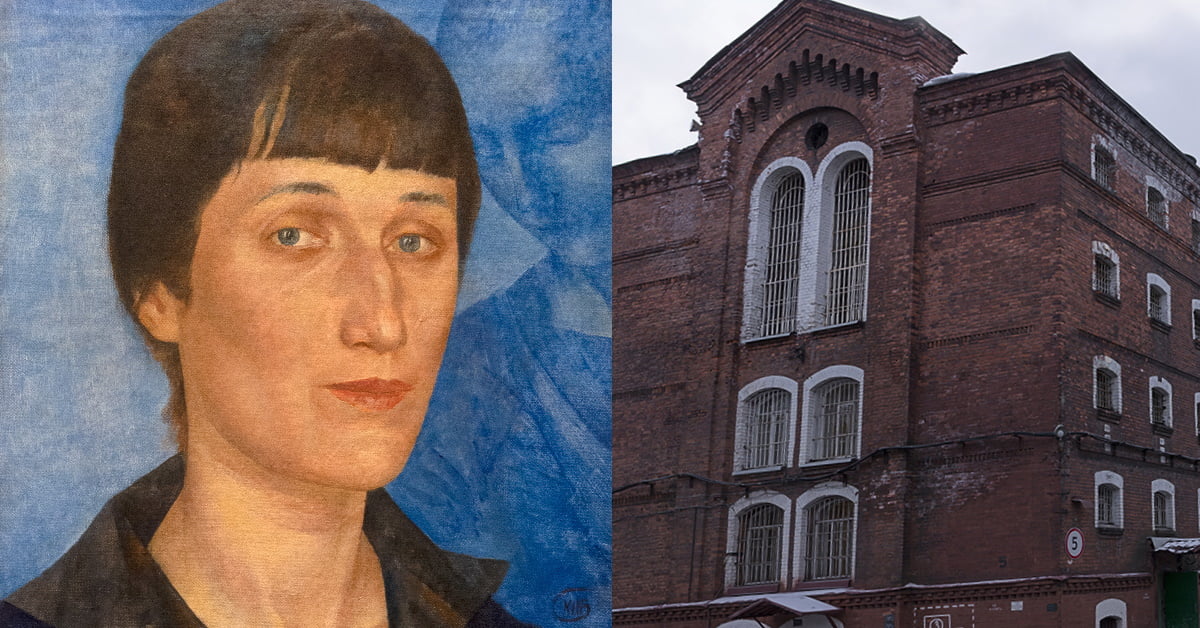According to a number of sources, the authorship of the catchphrase about the times of mass repressions belongs to the pen of the great Russian poetess. We checked if this is true.
The words that during the era of the camps, Soviet citizens in equal proportions belonged to one of two categories have long become popular. In particular, they were used by the chairman of the Krasnoyarsk historical, educational and human rights society “Memorial” Alexey Babiy, expert at the Foundation for the Defense of Prisoners' Rights Peter Kuryanov, writer Alexander Genis, founder of The Bell project Elizaveta Osetinskaya, producer Mark Rudinshtein and others. And rock musician Yuri Shevchuk projected them for our time and the political elite.
This quote in various variations is attributed to Anna Andreevna Akhmatova by the literary critic Oleg Demidov, front-line writer Talgat Ibatullin, Associate Professor, Kursk Institute of Management, Economics and Business Nikolay Klikunov and magazine "Echo of the Planet". However, the most famous mention is in the book "Chernobyl Prayer" (1997) by the future Nobel laureate in literature Svetlana Alexievich: “As Akhmatova wrote, “half the country was imprisoned, half the country was imprisoned.” Often a quote is mentioned in the format “Half the country was sitting, half the country was guarding”, sometimes also with attribution Akhmatova.
Much has been written and said about the difficult fate that befell one of the most significant Russian poetesses. At the end of her life, many writers chose to stay away from their colleague, who turned out to be incompatible with Soviet power, but firmly decided not to leave Russia. However, there were exceptions.
On March 4, 1956, Anna Akhmatova was visited by Lydia Korneevna Chukovskaya, the daughter of the famous writer, with whom the poetess became friends in 1938 in long lines at the gates of the Crosses (Akhmatova was preoccupied with the fate of her son, Chukovskaya with her husband). This time, the poetess was in a festive mood: a few days earlier, at the 20th Congress of the CPSU, Nikita Khrushchev made a revealing report about Stalin’s personality cult, then the writer Alexander Fadeev sent it to the Main Military Prosecutor’s Office petition on the review of the case of Lev Gumilyov. And when it came to the figure of the leader, Akhmatova, according to Chukovskaya, said: “What we experienced - yes, yes, all of us, because the dungeon threatened everyone! - no literature has captured it. Shakespearean dramas - all these spectacular villainies, passions, duels - are trifles, child's games compared to the life of each of us. I don’t dare talk about what those executed or the camp inmates experienced. It is not called a word. But each of our prosperous lives is a Shakespearean drama a thousandfold. Silent separations, silent black bloody news in every family. Invisible mourning on mothers and wives. Now the prisoners will return, and the two Russias will look into each other’s eyes: the one that imprisoned, and the one that was imprisoned. A new era has begun. You and I have lived to see it.”
This episode was included in Lydia Chukovskaya’s memoirs “Notes about Anna Akhmatova,” based on the writer’s many years of diaries. In 1974, a significant part of the Notes was published in Paris by the publishing house YMCA-Press, and in 1976–1980 it also published full version of Chukovskaya's memoirs in two volumes. Finally, after the start of perestroika, Zapiski began print in the USSR, so Svetlana Alexievich by 1997 (When was "Chernobyl Prayer" released?) had every chance to get acquainted with the exact quote of the famous poetess. Nevertheless, as we see, there was a serious distortion of Akhmatova’s thought - perhaps she did not mean that people in the USSR were divided into only two opposing categories.
As for the “security” variation, it is difficult to single out one author. Back in 1973, songwriter Robert Rozhdestvensky wrote a poem that contained the words: “Mommy’s shoes, grandma’s gingerbread cookies. Half the country is criminals. Half the country is guards... The lieutenant looks out the window - he drinks, he won’t stop. Half the country is already in prison. Half the country is getting ready.” The work was too bold for its time, and only in 1991 Joseph Kobzon decided fulfill a song based on these words in the Hall of Columns of the House of Unions at the creative evening of Oscar Feltsman. The author of another version of the phrase about security guards (“Half sits, half guards, then they change”) can be called the satirist Mikhail Zhvanetsky. She entered his monologue “It’s good where we are not”. And although the quote that interests us could have gone to the people even before Robert Rozhdestvensky, we can assume that in the appearance of the word “half the country” by Svetlana Alexievich there is also some “fault” of his poems.
Half-truth
Read on topic:
1. Lydia Chukovskaya. Notes about Anna Akhmatova
If you find a spelling or grammatical error, please let us know by highlighting the error text and clicking Ctrl+Enter.







